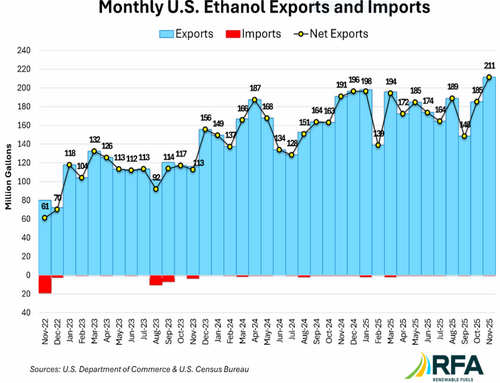Source: National Corn Growers Association news release
The Office of the United States Trade Representative on Thursday released final actions related to Section 301 fees on Chinese-made vessels arriving at American ports, making significant changes from the initial proposed actions. The development comes after the National Corn Growers Association (NCGA) called for USTR to consider the impacts that the fees would have on farmers and provided suggestions for improvement.
While direct impacts on agriculture are still being determined, the final proposal is a step in the right direction to mitigate impacts on shipments of commodities, which directly impact corn growers, say agricultural leaders.
“Our concern all along has been that any fees placed on Chinese vessels could be passed on to American farmers who rely on those ships to export corn,” said NCGA President Kenneth Hartman Jr. “While we are still working to understand how this new version will impact the corn industry, we believe this final action is more workable than the initial proposal.”
NCGA estimated that the original proposal could have cost corn growers as much as $0.64 per bushel, which translates to 14% higher costs from current price levels. The added cost had the potential to reduce U.S. corn exports and impede market access.
Instead, the released action specifies that fees will be assessed on Chinese vessel operators and Chinese-built ships per voyage, not per port call, as was originally proposed. Additionally, fees cannot be imposed more than five times per year. And short voyages, vessels arriving empty, and vessels carrying less than 50,000 tons will be exempt from the fees.
The action will occur in two phases to allow businesses to adjust, and for the first 180 days, applicable fees will be set at zero.
The restrictions are an outgrowth of the Trump administration’s efforts to address a report showing China has given its shipbuilding and maritime industry an unfair advantage through financial support, barriers for foreign firms, intellectual property theft, procurement policies and forced technology transfers.
To address the issue, the Office of the United States Trade Representative issued a proposal in March to place fees and other restrictions on Chinese vessels.


